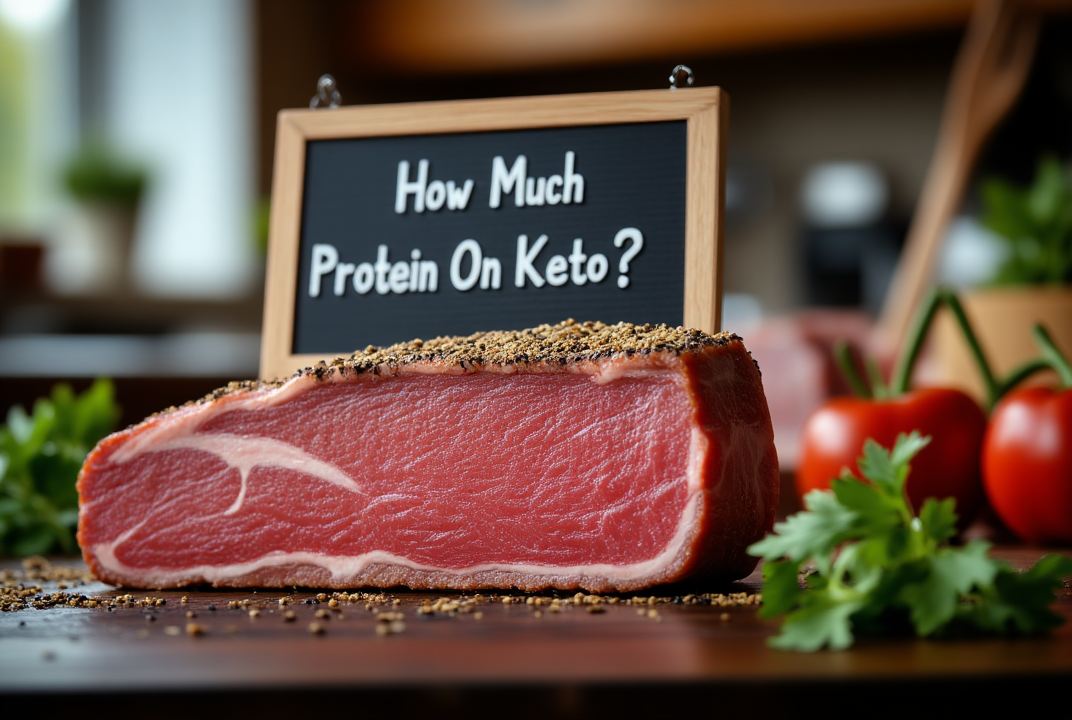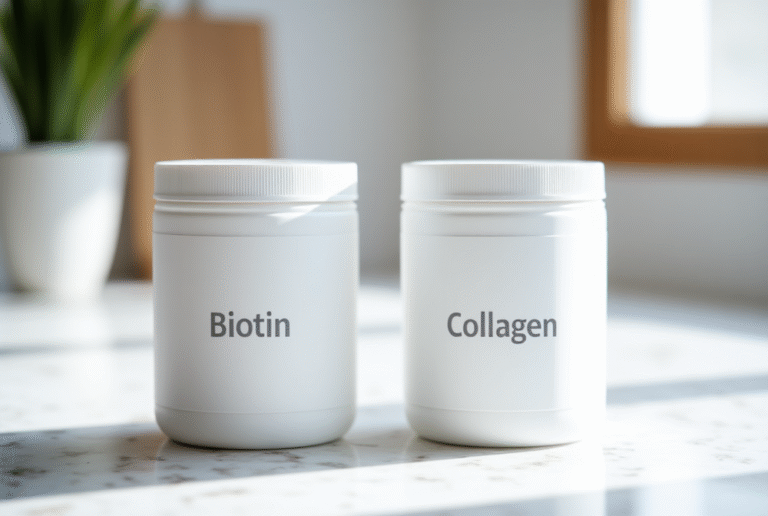
Whether you’re new to keto or looking to fine-tune your results, understanding protein intake is crucial for success. Many keto enthusiasts worry that eating too much protein will sabotage their progress, but the truth is more nuanced. This article will clarify how much protein you should eat on a ketogenic diet, explain why it matters, and offer actionable advice to help you thrive—no matter your fitness or weight loss goals.
Why Is Protein Intake So Important On The Keto Diet?
Protein intake is essential on the keto diet because it supports muscle maintenance, aids in satiety, and helps regulate key metabolic processes without disrupting ketosis when consumed in the right amounts. Unlike carbohydrates, protein provides the amino acids your body needs for tissue repair, immune function, and hormone production, all while helping you feel fuller for longer—making it easier to stick to your eating plan. Additionally, adequate protein prevents muscle loss during weight loss and ensures your body burns fat rather than breaking down lean tissue, which is crucial for achieving sustainable results and overall health on a ketogenic lifestyle.
What Are the Best High-Protein Foods for Keto?
- Eggs: Versatile, affordable, and packed with high-quality protein, eggs are a keto staple that can be enjoyed in countless ways.
- Salmon: Rich in protein and healthy omega-3 fats, salmon supports muscle maintenance and heart health while keeping carbs low.
- Chicken Thighs: Juicy and flavorful, chicken thighs provide ample protein and healthy fats, making them ideal for keto meal prep.
- Bone Broth: Not only is bone broth a source of protein, but it’s also loaded with collagen, minerals, and gut-supporting nutrients.
- Greek Yogurt (Full-Fat, Unsweetened): This creamy option delivers a protein punch with minimal carbs, supporting muscle health and satiety.

Can Too Much Protein Kick You Out Of Ketosis?
While it’s a common concern that eating too much protein can kick you out of ketosis, the reality is more nuanced. Excess protein can be converted into glucose through a process called gluconeogenesis, but this process is demand-driven and typically not significant enough to disrupt ketosis for most people. As long as you keep your carbohydrate intake low and your overall protein intake within a moderate range, your body will remain in a fat-burning state. In fact, adequate protein is essential for muscle preservation and metabolic health on keto, so there’s little need to fear moderate increases—especially if you’re active or aiming to lose weight.
How Much Protein On Keto?
The optimal amount of protein on keto depends on your individual goals, body composition, and activity level, but most experts recommend consuming between .6 to 1. grams of protein per pound of lean body mass per day. This range ensures you get enough protein to preserve muscle, support metabolic health, and promote satiety without interfering with ketosis. For most people, this translates to roughly 15–25% of total daily calories coming from protein. Tracking your intake and adjusting based on your progress can help you find the sweet spot that keeps you energized, supports your goals, and maintains ketosis.
Keto Protein Chart
|
Body Weight (lbs) |
Daily Protein Range (g) |
Example Protein Sources |
|
120 |
72 – 96 |
Chicken breast, eggs, tofu |
|
140 |
84 – 112 |
Salmon, Greek yogurt, beef |
|
160 |
96 – 128 |
Turkey, cottage cheese, pork |
|
180 |
108 – 144 |
Tuna, shrimp, tempeh |
|
200 |
120 – 160 |
Lamb, sardines, protein shakes |
|
220 |
132 – 176 |
Duck, cheese, seitan |
*Protein range calculated at .6–.8 grams per pound of body weight. Adjust based on lean body mass and activity level.
Does Excess Protein Turn Into Glucose (Gluconeogenesis)?
Excess protein can be converted into glucose through a metabolic process called gluconeogenesis, but this process is tightly regulated and occurs primarily to meet the body’s essential needs for glucose, such as fueling the brain and red blood cells. On a ketogenic diet, gluconeogenesis is not a constant or unlimited process; it only ramps up when the body requires more glucose, not simply because you’ve eaten more protein. For most people, moderate increases in protein intake will not produce enough glucose to disrupt ketosis, especially if carbohydrate intake remains low. This means you can prioritize adequate protein for muscle maintenance and overall health without worrying that every extra gram will automatically kick you out of ketosis.
How Do You Know If You’re Getting Enough Protein?
Track Your Daily Intake
Start by logging everything you eat using a nutrition tracking app or food journal. This helps you see exactly how much protein you’re consuming each day and compare it to your target range based on your body weight and goals.
Monitor Your Energy and Satiety
Notice how you feel throughout the day. Adequate protein intake should leave you feeling satisfied after meals, with steady energy levels. If you’re frequently hungry or experiencing energy crashes, you may need to increase your protein.
Assess Muscle Maintenance and Strength
Pay attention to your muscle tone and physical performance, especially if you’re working out. If you notice muscle loss, weakness, or slower recovery, it could be a sign you’re not getting enough protein to support your activity level.
Check for Signs of Deficiency
Look out for symptoms like hair loss, brittle nails, or frequent illness, which can indicate insufficient protein intake. Your body needs protein for tissue repair, immune function, and overall health.
Adjust Based on Progress
Regularly review your results and make adjustments as needed. If you’re not seeing the desired changes in body composition, energy, or well-being, gradually increase your protein intake and reassess after a few weeks.
When Is The Best Time To Eat Protein During The Day?
The best time to eat protein during the day depends on your lifestyle and goals, but spreading your protein intake evenly across meals is generally most effective for muscle maintenance, satiety, and metabolic health. Consuming protein with each meal helps support steady energy levels, curbs hunger, and maximizes muscle protein synthesis, especially if you’re active or aiming to build or preserve lean mass. For those who exercise, including a protein-rich meal or snack within a couple of hours after your workout can further enhance recovery and muscle growth. Ultimately, consistency matters more than precise timing, so focus on meeting your daily protein needs throughout the day.

Keto Protein Tips
- Prioritize Whole Food Sources: Choose high-quality, minimally processed proteins like eggs, fish, poultry, and grass-fed meats to maximize nutrition and satiety.
- Distribute Protein Evenly: Spread your protein intake across all meals to support muscle maintenance, steady energy, and better appetite control.
- Monitor Portion Sizes: Use a food scale or tracking app to ensure you’re hitting your target protein range without accidentally overeating or undereating.
- Include Protein in Snacks: Opt for keto-friendly snacks like bone broth, hard-boiled eggs, jerky, or Greek yogurt to help you meet your daily protein goals.
- Adjust for Activity Level: Increase your protein intake slightly if you’re highly active or strength training to support muscle repair and recovery.
Conclusion
Finding the right amount of protein on keto is key to unlocking your best results, whether your goal is weight loss, muscle maintenance, or overall health. By prioritizing high-quality protein sources, tracking your intake, and adjusting based on your body’s needs and activity level, you can confidently support your metabolism and stay in ketosis. Remember, protein is your ally on the ketogenic journey—helping you feel satisfied, energized, and resilient as you work toward your goals. Stay consistent, listen to your body, and embrace the power of protein for long-term keto success.
Final Thoughts
Looking for an easy way to boost your protein intake on keto while supporting your gut health? Check out Dr. Kellyann’s bestsellers, including delicious options like chicken, beef, and french onion bone broths—all crafted without GMOs or added sugars. These nourishing broths make it simple to stay on track with your keto goals. Explore the full Dr. Kellyann’s collection to find your perfect match.
Sources
- https://nutritionsource.hsph.harvard.edu/healthy-weight/diet-reviews/ketogenic-diet/
- https://en.wikipedia.org/wiki/Gluconeogenesis
- https://www.health.harvard.edu/blog/how-much-protein-do-you-need-every-day-201506188096






